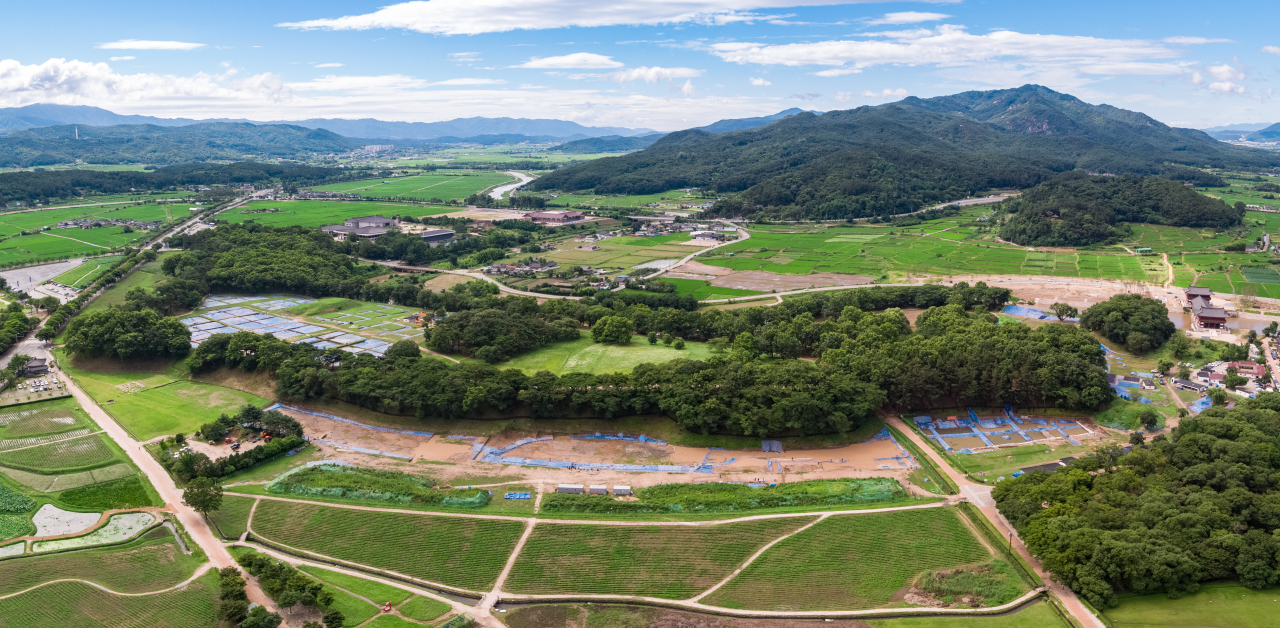 |
A view of the site of Wolseong, a now-destroyed royal dwelling of the Silla Kingdom (57 B.C.-A.D. 935), located in Gyeongju, North Gyeongsang Province. (Cultural Heritage Administration) |
The Cultural Heritage Administration on Wednesday announced that it has created material about the site of Wolseong, also known as Moon Palace, in Gyeongju, North Gyeongsang Province, in three foreign languages -- English, Chinese, Japanese.
Wolseong was a royal dwelling of the Silla Kingdom (57 B.C.-A.D. 935), and stood until the kingdom collapsed.
An archaeological dig by the CHA in 2017 led to the discovery of bones of two people under the west walls of Wolseong Palace, suggesting that the Silla Kingdom practiced human sacrifice.
Wolseong Palace is part of the “Gyeongju Historic Areas” which was designated as a UNESCO World Heritage site in 2000.
According to CHA, four documents about Wolseong -- “Flowers, trees and animals of Wolseong,” “Wolseong Moat,” “Royal palace of Silla Millennium, Wolseong” and “Gyeongju Wolseong Excavation Research” -- were translated to meet the demand of the increasing number of tourists visiting the area following its UNESCO enlistment.
“Royal palace of Silla Millennium, Wolseong” is a 12-page document for experts about the findings from the archaeological dig on the site of Wolseong Palace conducted by the Gyeongju National Research Institute of Cultural Heritage under the CHA.
The three other documents are eight-page guidebooks for visitors. They contain brief explanations and pictures of the site, including the fauna and flora of the area.
The CHA hopes that this information can help people interested in Korean pop-culture gain an interest in Korean history as well.
However, the translated documents and related information were not available on Wednesday.
“Currently only Korean documents about Wolseong are provided on our website. The translated documents will be available soon,” Gyeongju National Research Institute official told The Korea Herald.
Meanwhile, the institute said that it plans to use the documents for its guided program for foreigners, currently suspended due to the COVID-19 spread.
By Song Seung-hyun (
ssh@heraldcorp.com)








![[Today’s K-pop] Blackpink’s Jennie, Lisa invited to Coachella as solo acts](http://res.heraldm.com/phpwas/restmb_idxmake.php?idx=644&simg=/content/image/2024/11/21/20241121050099_0.jpg)